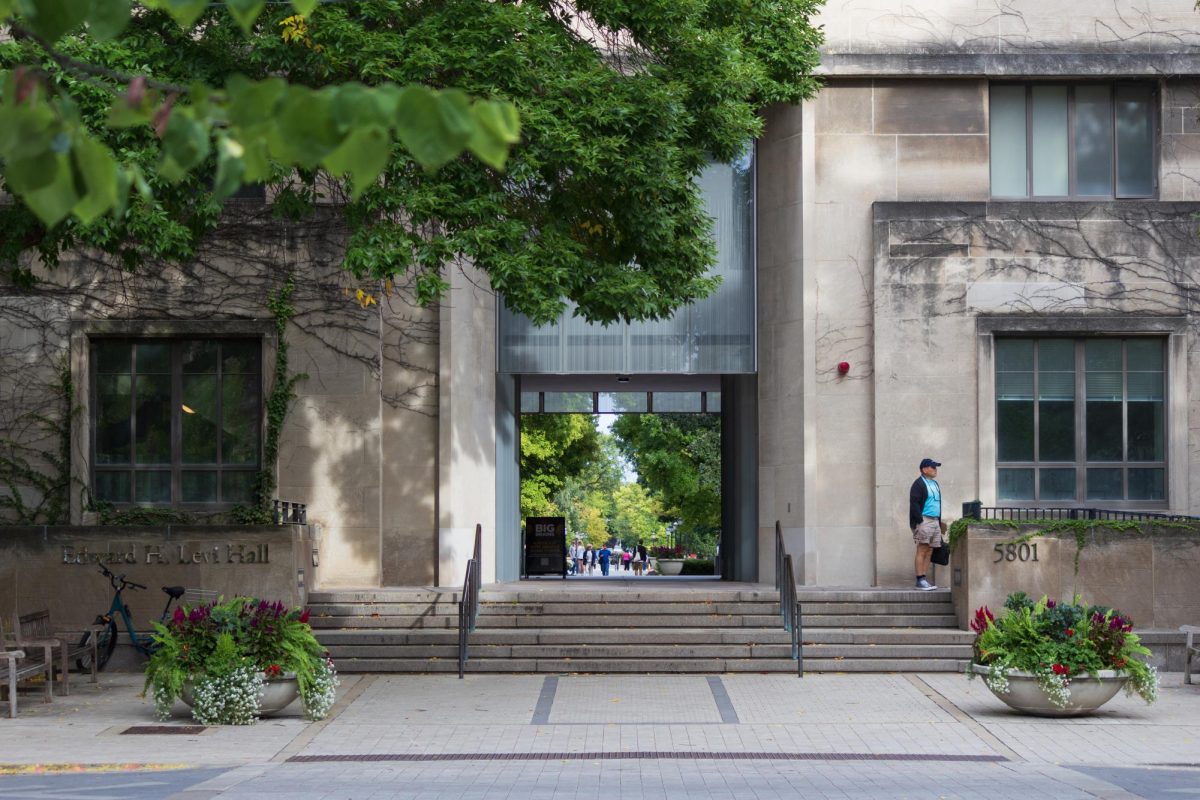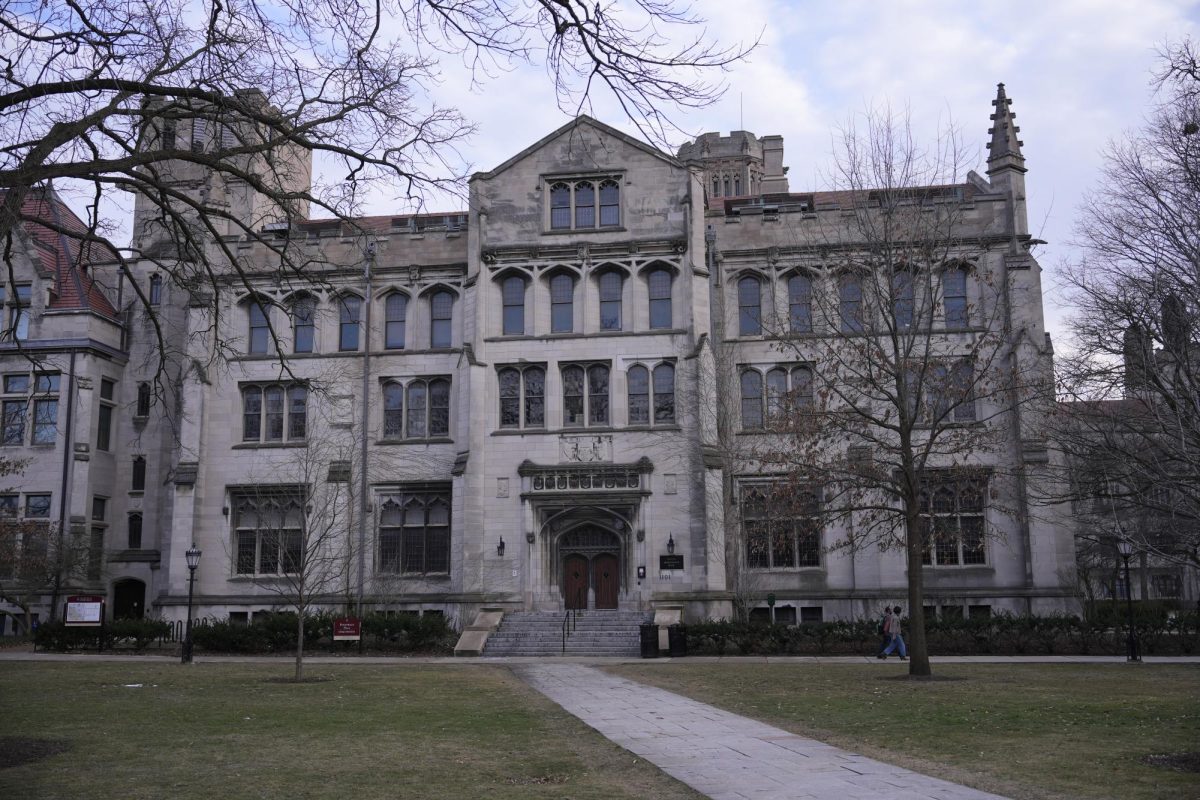What could add to the moral outrage we rightly feel at the sufferings of an oppressed minority or person? The appropriation of that oppression by someone who has not suffered. Pretending or claiming to have suffered the same as an actual victim of oppression, discrimination, exploitation, or harassment rightfully offends our sense of moral justice. Yet recent examples abound.
Why was Rachel Dolezal vilified for her claim to be Black? Why were so many people outraged when charges were dropped against Jussie Smollett, who falsely claimed to be the victim of a homophobic and racist attack? And why are so many faculty, students, and alumni like myself so skeptical of the claims of oppression or exploitation made by privileged Ph.D. students at elite universities such as Yale, Harvard, Columbia, and the University of Chicago, including Graduate Students United (GSU), which is calling for picketing starting Monday?
There are terrible facts of oppression, discrimination, or exploitation of many groups: of women, of homosexuals, of racial, linguistic, or religious minorities, of workers. Then there is someone who has never experienced those injustices taking up the mantle of those who have and claiming victimhood. The mayor of Chicago gave a scathing assessment of Smollett’s self-serving behavior, saying that Smollett “used the hate crime laws to advance his own career and he got caught…. This is what is upsetting people in the city and around the country…. That’s wrong.” The mayor was right that Smollett’s appropriation of others’ oppression amounts to a “moral violation.” Smollett committed oppression appropriation. This is an ethical wrong on its own, and doubly damaging in that it makes real victims of such oppression less likely to be believed or sympathized with.
Exactly the same kind of oppression appropriation is exhibited in the overblown rhetoric of certain Ph.D. students at elite universities pretending that their cause is similar to that of exploited workers, now or historically. While unions have played important roles in securing fair pay, good hours, and safe working conditions for workers in a large number of industries, it is simply ludicrous to claim, as some elite Ph.D. students in graduate student unions have implied in member meetings I have heard about, that their situations are in any way comparable, for example, to that of the coal miners George Orwell described so vividly in The Road to Wigan Pier in 1937.
I finished my Ph.D. at the University of Chicago in 2018. Like most of my peers, I counted myself among the most privileged students in the world: We enjoy immense resources (libraries, laboratories, time, and access to experts), we are selected from a huge number of qualified people who wish to pursue such degrees (admissions rates for elite Ph.D. programs are around 5 percent), and we are paid by the University to pursue our studies: The minimum compensation package next year is $35,398 per year for five years, including fully paid health insurance, access to dental and vision plans, the $60,300 annual tuition fee waived, and additional funding available for research expenses, including travel, and for childcare. In other words, each time the University admits a Ph.D. student, it is making an enormous investment in the student: more than half a million dollars over five or six years. For people who are not in academia, this may seem like a most luxurious position: take classes, learn, read, talk to other very informed people, and write a dissertation on a topic of your choosing, immersing yourself in a world of research that no other kind of institution but universities supports. The situation of graduate students at many state universities, both M.A. and Ph.D., bears little resemblance to this heaven. At the nearby University of Illinois at Chicago, Ph.D. students come onto campus and from day one are expected to teach their own courses, with up to 45 students each, for $18,065 per year. But at an elite program like the University of Chicago’s, my experience was typical: Like most typical humanities or social science Ph.D. students, my Ph.D. program required me to serve as a teaching assistant (TA) for three quarters and to teach just one course during the entirety of the first five years. I was also able to TA another course outside my department for additional compensation. During most of my time at the University, in other words, I, like most of my peers, was neither a TA nor an instructor at all.
Modern mine workers in developing countries like Zimbabwe, like the coal miners Orwell lived among and wrote about, work and live under conditions that unions can do much to alleviate. For privileged Ph.D. students to compare themselves and their situations to such workers is not just ridiculous, but offensive: It is attempting to appropriate those workers’ exploitation and suffering. The life of a Ph.D. student at an elite university bears no relation to that of a miner. A small number of elite Ph.D. students seem to wish they had the legitimacy of grievance that Orwell’s mine workers had: It would further their fantastical stated belief that they belong to the working class.
But the fact is that scholars in training at elite universities in the U.S. can hardly be called working class. They are masters of their own fate, almost entirely deciding (in consultation with their advisors) what to study, what to research, what to spend their days thinking about. They are well compensated for this training. Yes, at some universities undergraduate students have to pay huge tuitions and some of them end up with unmanageable debt as a result: Let me repeat that the University of Chicago and other elite universities do not charge any tuition at all in their Ph.D. programs, but rather actually pay Ph.D. students to pursue their degrees. I was able to finish my degree without taking out any loans at all, and I know of no one in my program who had to take out loans. As someone with a number of intersectional identities shared with people who have actually faced discrimination and obstacles to academic success (I was a first-generation student, an immigrant, a woman, a non-native-speaker of English, and from a working class family with no ability to support my study for a five-year Ph.D. program in the U.S.), I found and still find UChicago to be a heaven of access and opportunity.
Unlike many in the working class, Ph.D. students have numerous opportunities to receive additional training, experience, and compensation, even if the stipend provided to them already fully supports them. Various opportunities for campus employment through graduate student internships are offered on a yearly basis. For example, the Higher Education Administration internship offered me the opportunity to explore administration in higher education institutions by working at campus offices, like the International House. Moreover, the Graduate Global Impact Internship Program further assisted me in securing a paid internship with an academic, nonprofit organization in Europe, which was a truly generous support in the summer of my fifth year. Writing and speaking consultant positions at the Writing Program and the UChicagoGRAD office allowed me to develop my own tools for effective use of these skills, and teaching consultant positions through the Chicago Center for Teaching trained me for a lifetime of teaching. The gain from all of these, of course, extends beyond any compensation as the experience a Ph.D. student gets opens new possibilities for future employment after graduation. Learning to plan and implement programs and events, to organize career workshops, to give feedback to our peers, to communicate appropriately within a network of administrative staff, to be informed about the procedures and offices available to us and to understand the structure of a higher education institution at a professional level, is a life gift that one can only embrace. In all of these, no oppression or exploitation of any sort is ever present, and work hours are vetted by the dean of students for each student to ensure a good working hour schedule and success in their programs of study. The essence of graduate experience should focus more on developing these skills and less on being disoriented by arguments of oppression and victimization. Again, if I, with my background, was able to find all of these opportunities and thrive at a university like UChicago, then most definitely other students can.
By any sane metric, therefore, elite Ph.D. students are just that: elite, having earned admission into the very best Ph.D. programs in the world, pursuing the highest research degree that universities confer. The vast majority of elite Ph.D. students understand this, appreciate the opportunity, and are humble in the recognition of their own privilege and accomplishment. We who have and have had this opportunity have no right to claim we are exploited or oppressed: to do so would be to commit oppression appropriation.
Natalia Pavlou graduated in 2018 with a Ph.D. in linguistics.







